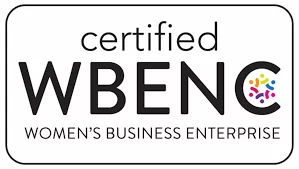The red-hot job market may have you looking for greener pastures and new opportunities. With a whopping 10.9 million open jobs organizations are competing for top talent, giving job seekers the upper hand. But landing that new gig is only part of transitioning your career. Thoughtfully planning a departure from your current employer is equally important. There are two critical factors in resigning: grace and professionalism.
Here are seven tips to help ensure a smooth transition, protect your reputation and leave on good terms after you submit a resignation.
1) Be certain it’s the right time to go. Ensure that your new offer ticks all the boxes: compensation, perks and benefits, greater flexibility, and most importantly, improved culture. Carefully weigh all the pros and cons of leaving and ensure the new job is an investment in your future. Will your new boss both respect and inspire you? Is professional development highly valued in the organization? Do you see a clear path for advancement? Be 100% on the new offer, and accept it, before you resign.
2) Write a resignation letter. A well-written resignation letter can help you maintain a positive relationship with your current employer — even after you’re gone. It also serves as formal documentation that you are leaving and confirms your last day. If you have a strong, positive relationship with your supervisor you may consider telling them face-to-face before submitting a letter to HR. Either a typed letter or email is sufficient documentation, but either way, be certain to include a thank you for the opportunity to serve the company. Do not voice any negative opinions about the organization or people in your letter.
3) Give at least two weeks’ notice. The industry standard is two weeks notice prior to your departure. But you may have signed a contract that requires more notice. If you are leading a significant project or want to help train your replacement, you may also consider giving more notice. Depending on your availability, staying longer might help maintain a stronger, more positive relationship with your current employer.
4) Provide honest feedback about why you are leaving. While it’s not mandatory to share the reason for your resignation, giving honest feedback can help HR and senior leadership make positive changes within the company. Most employers will schedule an exit interview with you, which is dedicated time to provide constructive insights on why you are leaving. Your objective is to remain positive while sharing what prompted your decision to leave, whether more competitive pay and benefits, corporate culture or company policies.
5) Help transition work and train your replacement. Complete as many projects as possible, and work with your supervisor to develop a transition plan for anything outstanding. Document your day-to-day routines, processes and procedures. Chances are a colleague will step in to cover your work in the interim. Help set that person up for success, and when asked about your new adventure, remain positive in talking about your current employer.
6) Maintain positive relationships with former colleagues. Word-of-mouth travels fast when you are leaving. As an ambassador of the organization, remain positive in all communications as you transition out of the company. Those who stay will notice how you leave and what was said. A gracious and positive exit can help maintain morale for the team you are leaving behind. Once you are gone, keep in touch with colleagues. You never know when you may need or be asked to give a referral.
7) Share gratitude. You may have built many positive and meaningful relationships with colleagues, your supervisor and senior leadership. Make time to thank the individuals who shaped your career and impacted your work. It’s important to show gratitude for those who helped you grow personally and professionally.
Planning a career move or curious about new opportunities? Tap into Alliance Resource Group’s resources and expertise.





